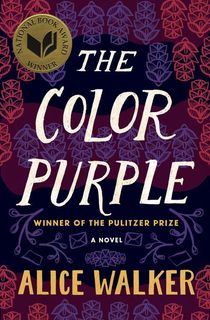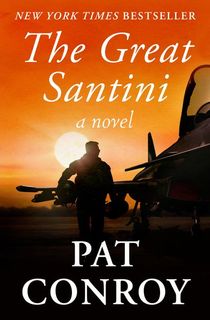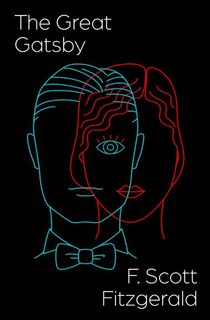There are many ways to hate a fictional character. Sometimes, it’s damn good fun to root against a grotesque villain, while other characters are so deliciously evil that, even though we hate them, we not-so-secretly want to be their friend.
And, of course, there are those antagonists so utterly loathsome that not even their deserved comeuppances can make us happy. Whatever the case, fiction is chock full of characters who we love to hate, fairly or otherwise. We’re looking at just 20 of literature’s biggest baddies, misjudged heroes, and figures who we all want to boo whenever they appear on the page.
Note: Spoiler alerts ahead!
Napoleon

Animal Farm
George Orwell's famous allegory for the rise of totalitarianism is pretty blatant in its parallels. Napoleon, a stand-in for Joseph Stalin, is the tyrannical dictator in waiting who uses the farm's revolution for his own gain, while his former comrade Snowball, the Leon Trotsky of the tale, is somewhat more idealistic.
The 1954 film depicted Snowball as a more fanatical figure, thanks to input from the CIA, which also led to a happy ending wherein Napoleon is overthrown. The book offers a far bleaker reality, wherein the "fierce-looking Berkshire boar" morphs into the same kind of dictator he sought to overthrow.
Humbert Humbert

Lolita
It would genuinely surprise many of you to discover how many people view Humbert Humbert, the manipulative pedophile of Vladimir Nabokov’s Lolita, as some sort of misunderstood anti-hero. It’s certainly a testament to the power of Nabokov’s hypnotic prose and the way that he crafted this unreliable narrator that decades of readers were taken in by his con.
Fortunately, that’s not the universal reading of the novel. Humbert is undoubtedly charming but it’s in his pseudo-intellectual defenses of his predatory behavior that we see his true self. He’s not a tortured genius but yet another abuser who tries to blame the victim for his crimes.
Nurse Ratched

One Flew Over the Cuckoo's Nest
Ken Kesey's One Flew Over the Cuckoo's Nest lingers long in the imagination thanks to its film adaptation. His countercultural tale of unconventional rebels in a psychiatric hospital features one of the most insidious villains in pop culture history: Nurse Ratched.
The head administrative force of the institution, Ratched's methods seem archaic and deliberately cruel, with no real medical reasoning behind them. It's clear that she is but one cog in a much more dangerous machine, one that dehumanizes the mentally ill mostly out of disdain. In the book, Ratched is sexually assaulted by Randle McMurphy, something that is thankfully left out of the movie. Ryan Murphy tried to give Ratched a lascivious and weirdly camp backstory in his Netflix series, but the original story is potent enough in its study of the mundane nature of evil.
Edmund "Bunny" Corcoran

The Secret History
We know from the first line that someone will die in Donna Tartt's hypnotically addictive debut novel, The Secret History. It's almost a relief to know that the one person in the circle of elitist classics students who will kick the bucket is Bunny.
While all of the sextet is insufferable in their own ways, Bunny takes that to a new level. He's boorish, bigoted, nowhere near as smart as he thinks he is, and just exhausting to be around. Bunny is the epitome of pretentious, and even though he’s part of a group that includes some truly terrible people, he’s the one you love to hate the most.
Bella Swan and Edward Cullen

Twilight
It’s easy to forget just how monumental a phenomenon the Twilight Saga was for several years. It was truly inescapable, and we’re still untangling its controversial legacy to this day. Perhaps that’s one of the reasons why distaste for the story’s romantic leads, the human Bella Swan and the dazzlingly beautiful vampire Edward Cullen, remains so forceful all these years later. It doesn’t help that Edward is a sociopathic creep with a possessive streak who seems to confuse hunger for lust.
Bella’s a teenage girl being toyed with by a centenarian, so she at least has an excuse. Still, she’s frequently cruel, utterly unconcerned with anyone aside from herself, and is obsessed with her undead boyfriend in a way that still leaves many readers unsettled. We’re all in on a good old-fashioned vampire romance, but Twilight, with its extremely outdated gender dynamics, feels like a throwback to a time we could do without revisiting.
Dolores Umbridge

Harry Potter and the Order of the Phoenix
With every passing Harry Potter book, the reader wonders how the Defense Against the Dark Arts teachers could possibly get any worse. Well, with The Order of the Phoenix, they somehow reach a new low.
Dolores Umbridge is a coldly efficient propagandist who thinks nothing of physically torturing children to keep them in line. She plans to keep the kids of Hogwarts ignorant as part of a smear campaign to hide the rise of Lord Voldemort, and her tactics are proudly fascistic in execution. There are lots of villains whose demise we cheered on during the Potter saga, but there was something particularly satisfying about Umbridge getting what was coming to her.
Augustus Gloop, Violet Beauregard, Mike TeeVee, and Veruca Salt

Charlie and the Chocolate Factory
Roald Dahl may have written some of the most beloved children’s novels of all time, but you often got the sense that he wasn’t that big a fan of kids themselves. In Charlie and the Chocolate Factory, five children win the chance of a lifetime to tour the near-mythic factory of one Willy Wonka, the world’s most secretive chocolatier.
Our hero Charlie Bucket is a kind-hearted young boy who finds the bright side of every situation. The other four kids, however, are a different story. Augustus Gloop is gluttonous; Violet Beauregard is sardonic and rude, popping gum loudly and as irritatingly as possible. Veruca Salt is a spoiled brat who has never heard the word “no” before, and Mike TeeVee is television-obsessed and seemingly cares about little else. Reading the book as a kid yourself, you revel in their deliciously ironic punishments. As an adult, it’s a tad more disconcerting.
Amy March

Little Women
It's been said that everyone can be easily categorized as one of the March sisters from Louisa May Alcott's beloved novel Little Women, and to be the Amy of your group is a bad sign. Poor Amy has never really gotten the credit she deserves. Seen as the bratty and shallower version of her older sisters, her selfishness from an early age positioned her, rather unfairly, as the antithesis of Jo and Meg.
Really, however, Amy works just as hard as her sisters and is as committed to her art as Jo is to her writing. Greta Gerwig's recent big-screen adaptation gave Amy her dues, with Florence Pugh playing her as a savvy, forward thinking young woman who understands the often-stifling realities of her lot in life.
[Editor’s note: Amy burning Jo’s manuscript makes some people’s hatred of her perfectly understandable, thank you very much.]
Hamlet

Hamlet
Poor Prince Hamlet. He’s had a tough time, what with the death of his father and his mother’s speedy remarriage to his uncle. Add a haunting and plea for vengeance on top of that, and it’s no wonder that this university student’s gotten a touch sulky.
It’s easy to forget, thanks to countless adaptations and stage productions that age him up, but Hamlet is meant to be no older than 23 or so. That makes his sullenness a little easier to swallow, but not so much his cruel treatment of Ophelia, nor the sheer number of screw-ups he makes in the name of revenge.
Ramsay Bolton

A Clash of Kings
George R.R. Martin certainly knows how to make you hate a character. His as-yet-unfinished fantasy saga A Song of Ice and Fire isn’t short of villains who could make this list, including the sniveling King Joffrey. Ramsay Bolton, however, is a special kind of evil.
An unrepentant sadist with a total lack of morals, he's responsible for the torture of Theon Greyjoy, a moment that is staggeringly tough to read, even by the series' stomach-churning standards. Bolton's legacy has been greatly bolstered by the HBO adaptation, Game of Thrones, and Iwan Rheon's spot-on performance. But even just on the page, Ramsay is skin-crawlingly repugnant.
Holden Caulfield

The Catcher in the Rye
The legend of J.D. Salinger’s The Catcher in the Rye greatly precedes it. It’s regularly featured on lists of the most popular books ever written, and many a conspiracy theorist is familiar with its myths.
Holden Caulfield is the epitome of a Marmite character: You either love him or hate him. There is no in-between with this novel’s very candid and often-pretentious narrator. He’s a teenage boy who, like so many of us at that age, thinks he’s got the world figured out. Caulfield is a figure of post-war malaise and the growing distrust towards the older generation. Really, he's almost too well-written, which may be why so many readers find him unbearable as a protagonist. Honestly, he'd probably love to know that about himself.
Light Yagami

Death Note
Manga, a kind of Japanese graphic novel, has its fair share of incredible villains, from the terrifying Johan Liebert of Monster to fan favorite Frieza from the Dragon Ball franchise. For us, though, there's nobody quite like Light Yagami from Death Note.
He's a wildly intelligent high schooler who discovers the notebook of a death god that allows him to kill people simply by writing their names within its pages. He decides almost immediately to use the Death Note to wipe the earth clean of all those who he deems unworthy of life. Plenty of fans love Light, seeing him as an anti-hero who had good intentions and deserves to win. We personally find it hard to root for the guy who declared his plans to be the new god of this planet within hours of acquiring the Death Note. His climax is one of the most deliciously satisfying in manga history.
Mr. ______/Albert

The Color Purple
For the majority of Alice Walker's startling novel The Color Purple, the reader does not know the name of the man who brutally rapes and abuses Celie for most of her life. He is simply known as Mister, a near-mythic figure who represents a lifetime of the subjugation of Black American women.
Mister is a poisonous force, coaxing his kinder son Harpo to copy his violent ways with his own wife, Sofia. It is only in the final years of his life, when his fortunes and personal health take a considerable decline, that he changes for the better, and Celie begins to address him by his first name, Albert.
Lt. Col. Wilbur "Bull" Meecham

The Great Santini
The "Great Santini" of Pat Conroy's novel is a former Marine fighter pilot who treats his own family with the same militaristic force as he does his former troops. In peacetime, Wilbur Meechum is a man out of place, drinking heavily and blowing his temper at every possible moment.
Many an adult has been haunted by the scene where Meechum berates his basketball star son Ben during a one-on-one game, bouncing balls off his head while sneering if he's going to cry. It's been parodied countless times over the ensuing decades, including in episodes of The Simpsons, but it's lost none of its force. For many, the Great Santini is a hateable man who feels far too familiar.
Patrick Bateman

American Psycho
Bret Easton Ellis may have written American Psycho in 1991, and he may have been intended as the most toxic embodiment of 1980s' yuppie culture, but Patrick Bateman has retained his vicious appeal right into 2021. Bateman seems to be living the '80s dream of excess, success, and ruthlessness, but as he soon makes clear to the reader, his utter apathy has left him unfeeling to the world.
He describes his horrendous abuse and murder of sex workers as blandly as he does his morning routine. Paragraphs of stream-of-consciousness criticism of Phil Collins are delivered as coldly as details on how he brutalizes his victims.
Many consider the novel to be misogynistic and too kind to Bateman, but that doesn't give the author enough credit. Bateman is a satirical creation, although he's still very easy to hate.
Kevin Khatchadourian

We Need to Talk About Kevin
Lionel Shriver may have put an entire generation of people off of having kids thanks to her petrifying psychological thriller book, We Need to Talk About Kevin. Kevin's mother Eva documents her life and mothering of Kevin after he is jailed for a mass killing. While her own wily narration suggests an unreliable narrator at work, the reality of Kevin's crimes and his dark childhood behavior make him all too easy for the reader to fear.
He embodies one of many parents' worst fears: the notion that the person they love the most, one they gave life to, could be so utterly heartless. Whether it's thanks to nature or nurture, the Kevin issue sends shivers down our spine either way.
Sherman McCoy

The Bonfire of the Vanities
Tom Wolfe's The Bonfire of the Vanities was widely seen as a Dickens-esque satire of its time; the ultimate novel of the 1980s that ruthlessly tore to shreds the decade's growing social cruelty and all-consuming greed.
Sherman McCoy is a successful New York City bond trader whose extravagant living is depleting his obscenely high income, yet he retains his status as the self-styled "Master of the Universe." His world comes crumbling down when he hits a young Black kid with his car.
Pretty much everyone in The Bonfire of the Vanities is some degree of grotesque. Peter Fallow, the has-been alcoholic journalist, latches onto the case and manipulates the media for his own gain. Reverend Bacon is a local religious leader who happily appropriates the story for his own political ambitions. The District Attorney in charge of the case seems more interested in media coverage than justice. It's a novel of bitter, unpleasant people who sometimes get what's coming to them, but all too often will survive the chaos just fine.
Tom Buchanon

The Great Gatsby
It wouldn’t be a novel of Jazz Age frivolities without a few seriously unlikeable characters. For many readers of Lost Generation writer F. Scott Fitzgerald’s The Great Gatsby, you have your pick of the litter for distasteful figures. This is, after all, a story about the poisonous force of inherited wealth and the class system, all in the name of ripping our preconceived notions of the American dream to shreds.
But at least you can feel a semblance of pity for the likes of Jay Gatsby and Daisy Buchanan, who are deliberate reflections of their era. Daisy's husband Tom, however, is just a rich brute who delights in rubbing his old money status in everyone's faces.
Uriah Heep

David Copperfield
Uriah Heep from Charles Dickens's David Copperfield is a character of such iconic obsequiousness that his name is now a cultural shorthand for sycophantic kiss-asses everywhere!
Uriah is a law clerk who thinks that his cloyingly fake humility is a suitable substitute for a personality, although it is remarkably effective in concealing his more insidious agendas. He's manipulative, cruel, and full of malice at every turn. You can practically feel the slime emanating from the pages whenever he appears in the novel.
Bill Sikes

Oliver Twist
Dickens definitely knew what he was doing when it came to creating easy-to-hate villains. Where Uriah Heep is snivelling, Bill Sikes is ruthlessly violent. Described in Oliver Twist as a man who "growled" out words, Sikes uses his fists to shut up anyone who disagrees with him, including his lover Nancy.
He later viciously murders her, tries to drown his dog when the police identify him, then hangs himself, possibly by accident. Dickens relished developing those shades of grey within even his most despicable characters, but Sikes is irredeemably evil.
Featured photo: Valerie Landel / Unsplash














